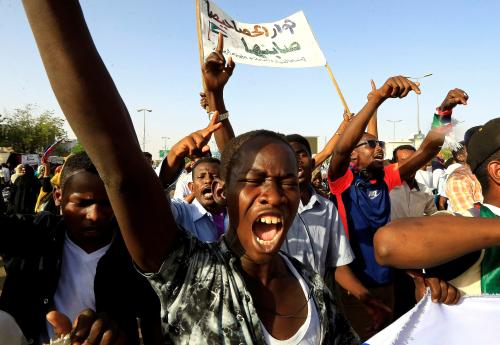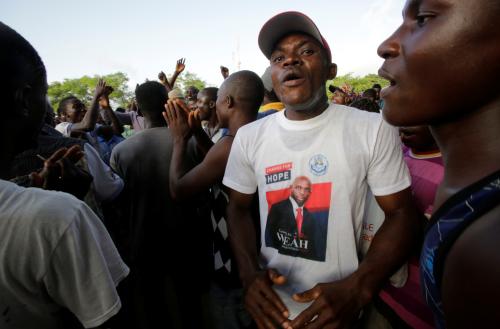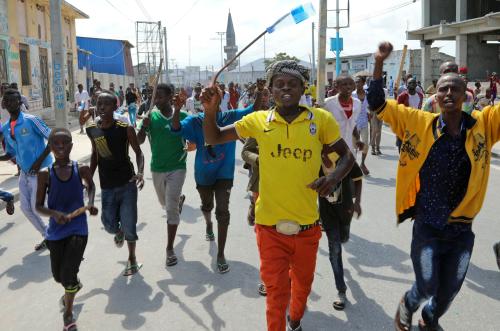

10:00 am EDT - 11:30 am EDT
Past Event
For over a year, Somalia and Ethiopia have faced severe crises in governance and security. As Ethiopia heads into elections in early June, the Tigray insurrection against the central government has metamorphosed into an entrenched insurgency, even as external powers such as Eritrea have reinforced the Ethiopian military. Dangerous tensions have also escalated between Ethiopia and Sudan. In Somalia, an effort by President Mohamed Abdullahi Mohamed to delay presidential and parliamentary elections and extend his rule has brought the country to the edge of a civil war. Intersecting with complex rivalries in the Red Sea region and the Middle East, tensions between Somalia’s federal government and federal member states risk wiping out a decade of stabilization efforts. Meanwhile, the terrorist group al-Shabab has been growing stronger over the past four years.
On May 20, Foreign Policy at Brookings convened a panel to discuss these internal crises, their regional complexities and repercussions, and June elections in Ethiopia and Somaliland — a state within Somalia. After their remarks, panelists took questions from the audience.
Viewers submitted questions via email to [email protected] or Twitter using #HornOfAfrica.
Moderator

Panelist



Nirav Patel
May 4, 2019

Mariama Sow
November 3, 2017

Dhruv Gandhi
October 20, 2017